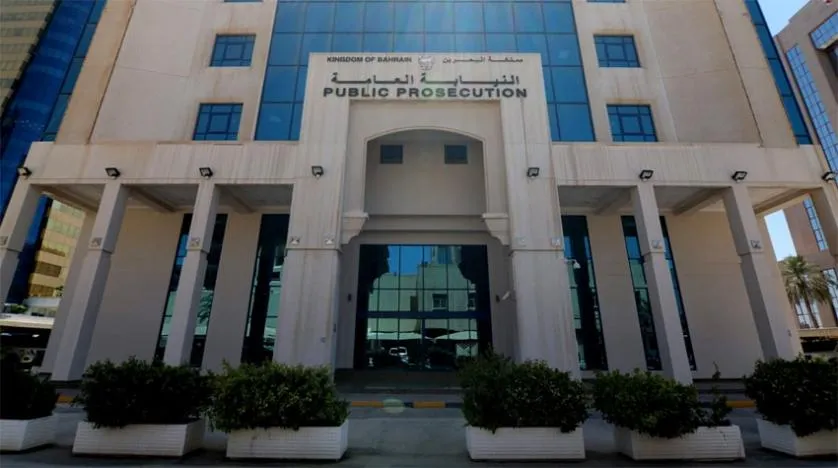Bahrain Public Prosecution minor cases authority has been officially expanded to allow faster handling of minor offenses. This landmark reform, introduced under Decree-Law No. (32) of 2025, empowers prosecutors to impose fines and resolve certain minor cases without the traditional court process. The move aims to reduce court backlogs, improve judicial efficiency, and provide timely justice to citizens.
Understanding the New Authority
What Does the New Law Entail?
Decree-Law No. (32) of 2025 empowers the Public Prosecution to handle minor criminal offenses more efficiently. Under the new provisions, prosecutors have the authority to impose fines up to BD 3,000 for certain offenses, bypassing the traditional court procedures. This approach is designed to expedite the legal process, providing quicker resolutions for minor cases.
Scope of Minor Offenses Covered
The law specifies that minor offenses, which typically involve lower penalties and less severe consequences, fall under the purview of this expedited process. These offenses may include petty theft, minor traffic violations, and other infractions that do not pose significant threats to public safety. By focusing on these cases, the legal system can allocate resources more effectively to address more serious crimes
Implications for the Legal System
Reducing Court Backlogs
One of the primary objectives of this reform is to alleviate the burden on Bahrain’s courts. By allowing the Public Prosecution to handle minor cases directly, the number of cases requiring judicial intervention is significantly reduced. This shift enables courts to concentrate on more complex and serious matters, thereby improving the overall efficiency of the judicial system.
Understanding the New Authority
The recent legal reforms empower the Public Prosecution to handle minor criminal cases more swiftly, bypassing certain procedural delays that traditionally extended the duration of such cases. This change is expected to lead to quicker resolutions and a more efficient judicial process.
Implications for the Legal System
Reducing Court Backlogs
One of the primary objectives of this reform is to alleviate the burden on Bahrain’s courts. By allowing the Public Prosecution to handle minor cases directly, the number of cases requiring judicial intervention is significantly reduced. This shift enables courts to concentrate on more complex and serious matters, thereby improving the overall efficiency of the judicial system.
Ensuring Proportional Justice
The new authority ensures that penalties for minor offenses are proportionate to the nature and severity of the crime. By granting prosecutors the discretion to impose fines, the system allows for a more tailored approach to justice, where the punishment aligns with the offense committed.
Enhancing Public Trust
Timely and fair justice is crucial in maintaining public confidence in the legal system. By expediting the resolution of minor cases, the Public Prosecution demonstrates a commitment to efficiency and fairness, which can enhance public trust in the judicial process.

Public Response and Reactions
Support from Legal Experts
Legal professionals have largely welcomed the reforms, noting that the expedited handling of minor cases can lead to more efficient use of judicial resources. Experts believe that this approach allows for quicker resolutions, reducing the time and costs associated with prolonged legal proceedings.
Concerns and Considerations
While the reforms have been met with general approval, some concerns have been raised regarding the potential for overreach. Critics argue that granting prosecutors significant discretion without judicial oversight could lead to inconsistencies in the application of justice. There is a call for mechanisms to ensure accountability and transparency in the implementation of these new powers.
Comparative Perspectives
International Practices
Many countries have implemented similar reforms to expedite the handling of minor offenses. For instance, in some jurisdictions, prosecutors have the authority to impose fines or alternative penalties for minor infractions, thereby reducing the caseload of courts and ensuring swift justice.
Lessons for Bahrain
Bahrain’s adoption of such reforms aligns with global trends towards more efficient legal systems. By learning from international best practices, Bahrain can refine its approach to ensure that the expedited handling of minor cases balances efficiency with fairness.
Conclusion
The granting of expanded authority to Bahrain’s Public Prosecution represents a significant step towards enhancing the efficiency and effectiveness of the country’s legal system. By streamlining the handling of minor criminal offenses, the reforms aim to provide timely justice, reduce court backlogs, and ensure that penalties are proportionate to the offenses committed. As these changes are implemented, it will be crucial to monitor their impact to ensure that the objectives of fairness and efficiency are achieved.
Do follow us: Instagram
Read More: EAM Jaishankar Holds High-Level Talks in Kuwait to Bolster Bilateral Ties



